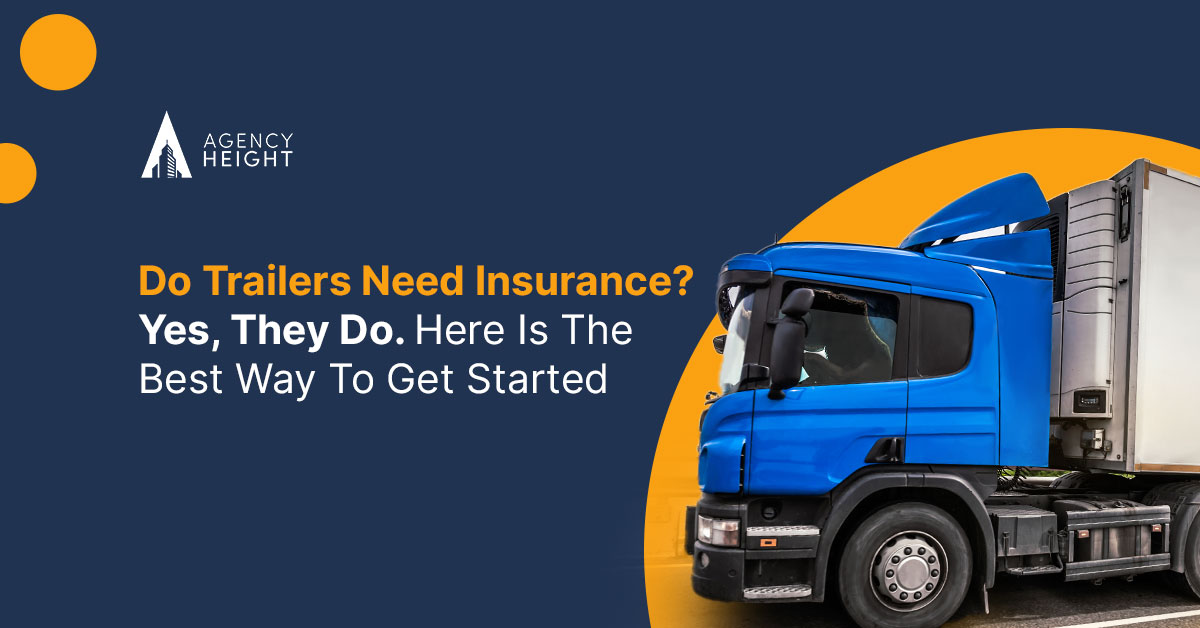Yes, Trailers Need Insurance. Here’s how To Get The Best Deal

There are several categories of trailers that are available today. A quick online search and you will have hundreds of options. Each trailer is unique and requires a separate kind of insurance policy.
Here is a list of the most popular types of trailers around and some policies you can get:
Flatbed Trailers
Businesses choose flatbed trailers because of their flexibility. Their flexibility means that they can transport materials such as boxes, steel beams, and liquid containers. They’re convenient to load and offload because there is no box covering the material. Instead, one should use a tarp or other covers on the flat surface of the trailer bed.
You can customize these to fit different materials. Also, there is no limit on what you can load or unload with them. According to Chrobinson, flatbeds can carry goods as heavy as 46,000 pounds at one go.
While carrying such weight, it’s quite easy for the vehicle to get into various accidents. For example, a truck with a flatbed trailer that is carrying heavy sewage pipe on a slippery road meets an accident. In this hypothetical scenario, the accident can be fatal as it will make the driver lose control of the vehicle and third-party injuries can also arise.
Flatbeds are generally classified as utility trailers. For these trailers, you need coverages such as:
Commercial Umbrella Insurance
Commercial Auto Insurance
Tow Truck Insurance
Commercial General Liability Insurance (CGLI)
The cost to insure a flatbed trailer will be between $600 to $1,000 a year.
Refrigerated Trailers
Refrigerated trailers are also another type under the commercial trailer category. A refrigerated trailer is a type of mobile storage unit that uses the power generated by its own engine to cool whatever product it’s carrying. They are more specialized than flatbed and enclosed models.
Refrigerated trailers are great for businesses that need to keep products under a certain temperature. This trailer is highly used by the pharmaceutical as well as the food industry.
Reefer trailers is another name for refrigerated trailers. According to an article on Freightwaves, reefer trailer requires special handling. Since the goods carried by such trailers are time-sensitive, appropriate coverage is a must. The article suggests that reefer breakdown insurance is a must-have policy in this scenario.
Additionally, here are some policies you should consider if your business requires the usage of reefer trailers:
Product Liability Insurance
Food Insurance
Reefer trailer insurance will cost a minimum of $600.
Travel Trailers
These trailers are behind a road vehicle in order to provide a place to sleep while traveling. Travel trailers generally include a kitchen, a bed, and a washroom.
Some types of travel trailers are:
You can get various types of comprehensive coverages for travel trailers. For example, if you own a camper or an RV, you can get either camper insurance or RV insurance.
You can also get your coverage customization as per your need. If you are someone who likes taking your trailer on long-distance journeys then you should consider investing in collision coverage. Here are some policies you should get:
Uninsured Motorist Insurance
Property Damage Liability
Bodily Injury Insurance
You can get travel trailer insurance for around $500 a year.





